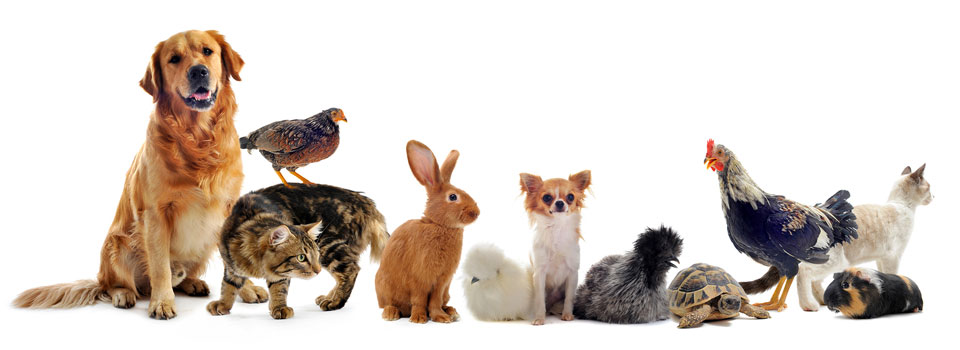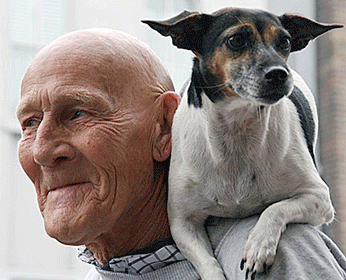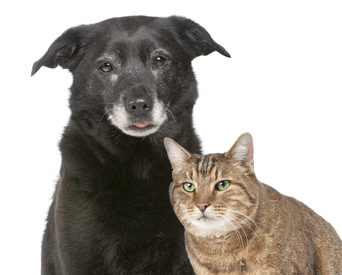
Dogs, cats and other small animals in a variety of ages and breeds are available for adoption. We make every effort to find the right pet for you and your family. Pets adopted from our shelter are spayed or neutered and receive necessary vaccinations. In addition, they are microchipped, dewormed and treated for fleas. Cats also receive a collar, a pet carrier and testing for Felv/FIV. Plus, all adopters are given a complimentary bag of Hill's Science Diet food.
| Animal | Age | Cost |
|---|---|---|
| Cats | 3 months-5 years | $75 |
| Kittens | under 3 months | $130 |
| Purebred cats | $125 | |
| Purebred kittens | $180 | |
| Senior cats | 6+ years | $35 |
| Dogs | 3 months-5 years | $110 |
| Puppies | under 3 months | $160 |
| Purebred/Highly Adoptable Dogs | 3 months-5 years | $210 |
| Purebred/Highly Adoptable Puppies | $260 | |
| Senior Dogs | 6+ years | $50 |
Download an Adoption Application
The York County SPCA is extremely fortunate to receive large donations of pet food from area suppliers. We extend our good fortune to those less fortunate who may need our help to provide food for their pets. This program has helped senior citizens on a fixed income as well as people who are temporarily unemployed. If there is a true need, please contact the shelter at (717-764-6109).

The York County SPCA partners with the County of York Department of Emergency Services to provide temporary foster and veterinary care for pets whose owners must evacuate their homes due to a natural and/or man-made disaster. Before the inception of this emergency disaster plan, owners had no choice but to abandon their animals at home or risk bodily harm by remaining in a life-threatening situation because they had nowhere to go with their beloved pets. Now they can seek shelter with piece of mind knowing they will be safe as well as their pets who will be loved and well cared for by the SPCA until they are able to be reunited and return home once again.
The York County SPCA relies on compassionate volunteers to foster underage, injured and sick animals until they are ready for adoption. These volunteers can provide the perfect home setting and personal attention these animals require. This program has been extremely beneficial for animals with special needs.
Download the Dog Foster Application
Download the Cat Foster Application
The York County SPCA provides programs on the importance of humane treatment of animals and responsible pet ownership for youths and adults. Education is an important tool in teaching the humane treatment of all creatures-human and humane. Contact the York County SPCA to schedule a program by calling (717)764-6109.
You can report neglect and/or abuse of an animal by calling the York County SPCA Humane Officer at (717)764-6109. All complaints the York County SPCA receives are kept strictly confidential. We do not inform the owners under investigation of the identity of the complaint. Please make sure you provide the Humane Officer with as much detailed information as possible including the name of the pet owner, address including directions if it is a rural address, telephone number, description of the animal and the reason for your complainant. Although you can remain anonymous, we recommend you provide us with your name and telephone number in the event we need more information or have questions. All information and your identity will remain anonymous. The animals cannot speak for themselves. Please be the voice for animals of neglect and suffering. We cannot do our job without you being our eyes and ears of the community. Please report animal neglect and cruelty immediate. If an animal is in a life-threatening situation, please page the York County SPCA immediately by calling 911 who can page the York County SPCA Humane Officer. Thank you for helping us to protect the innocent animals of our community.

We strive to reunite many worried owners with their lost or missing pets. We encourage pet owners to immediately contact us when they lose their pet. We hope that you never have to use the information below. If you do, we hope that your pet is safely returned to you. Please protect your pet by having them wear PERSONAL IDENTIFICATION TAGS with your name, address and telephone number. The York County SPCA microchips all adopted dogs and cats and provides them with a free SPCA identification tag. We also offer periodic microchipping clinics for the general public at a cost of $20 per chip. If you are interested in having your pet microchipped, please contact the York SPCA for information on upcoming clinics. In addition, free SPCA identification tags are available to the general public anytime during normal business hours.
If you have lost or found an animal, please notify us by filling out this form
The York County SPCA recognizes the best solution to the pet overpopulation problem is through prevention of unwanted litters. York County has a huge surplus of cat litters and pit bull litters for whom no loving family can be found. All pet guardians should be prepared to provide routine medical care for their pets and this includes spaying or neutering. However, for those people who require low cost spay or neuter services, we can provide these services at a significantly discounted rate. We also will provide discounted spay neuter services for neighborhood cats who are not your house hold pets. And we actively seek populations of stray cats to control that population.
If you are considering spaying or neutering your cat or dog, please download information available through the York County SPCA. If you would like more information or schedule an appointment, please contact the York County SPCA at (717)764-6109.
Download the Spay/Neuter Application

To help place older (or as we like to say "mature") pets, the SPCA notified area retirement homes mature pets were available for adoption at no charge. These pets add joy and happiness to their residents' everyday lives. Studies have proven people with pets live longer and lead happier and healthier lives.
The York County SPCA encourages pet owners to have their pets microchipped. This provides a permanent form of identification for your pet in the event that they become lost and lose their collar or tags. A microchip (the size of a grain of rice) is implanted under the skin below the back of your pet’s neck by needle. The implantation is painless and performed in just seconds. A scanner is then used to scan the animal and pick up the microchip that traces back to the owner. The York County SPCA receives thousands of stray animals each year and only able to return approximately 3% of these animals because they did not have any identification.
Microchipping is now recognized in Pennsylvania as a lifetime license so owners who have their dogs microchipped can register their dogs for a lifetime license and not have to purchase annual county licenses. The York County SPCA provides microchipping at their Emigsville facility for a fee of $25 per animal and can submit the paperwork to the York County Treasurer’s Office for the pet owner. The York County SPCA highly recommends dogs as well as cats receive microchips.
The fees to register your pet for a lifetime license through the County Treasurer’s office are:
Fees for a Person with Disability or Senior Citizen:
Regular License - Payable to Treasurer's Office
Microchip Fee - Payable to SPCA
The York County SPCA encourages dog owners to provide basic obedience training and behavioral modification for their pets to help reduce the number of pets surrendered to shelters that could be easily corrected through professional training by reputable, knowledge pet trainers. The York County SPCA currently partners with the following professional trainers:
Deb and her team offer complimentary, monthly sessions to the public for pet related problems. These sessions are held at the York County SPCA. Please contact the shelter for specific dates and times. In addition, they also donate their valuable time to working with our shelter pets for certification as Canine Good Citizens. For more information on CGC training, please contact Deb
Bella Vista Training and Care Center, (717)432-0750 or (717)515-5146(cell), www.bvtrainingcenter.com
Ramblewood Dog Training, (717)792-2734, email: EHG1230@cs.com
Keystone Dog Training, (717)268-1866, email: halle4@comcast.net, www.keystonedogtraining.com
The York County SPCA partnered with local pet store owners to provide adoption services. Many times the York County SPCA is faced with having too many animals and not having the facilities to accommodate them. These pet stores have offered these pets housing and care until they are adopted. Several hundred animals are adopted each year through this program. We have recently lost two of our three off-site adoption centers due to store closings. It has been a pleasure working with both Family Pet Center and Pet Valu and we wish them the best of luck in the future.

PetSmart
351 Loucks Rd.
York, PA 17404
(717) 854-5624
Morgans Paws
305 Hill St.
York, PA 17403
(717) 755-9544
Bark of the Town
Stony Brook Shopette
3755 East Market St.
York, PA 17402
Please show your support by patronizing our off-site adoption partners and please stop by and visit with the shelter animals awaiting adoption.
We provide educational seminars for our supporters on various topics such as Pet First Aid Training. Call the York County SPCA for details.
Dog bites are a major health problem for children. School age children receive more than 47% of all reported dog bites. As many as two-thirds of these dog bite incidents happen around a child's home and involve a dog that the child knows. The Dauphin County SAFE KIDS Coalition offers the following animal safety tips:
Remember, dogs speak with their bodies. Some warning signs are: glaring eyes, nose is wrinkled, hair is standing up, tail is up and stiff, legs are stiff, tail is between their legs, ears are back, corner of mouth is back, and the teeth are showing and growling or barking.

There are many changes that come with age. Your pet may be sleeping more because body systems are slowing down. "Accidents" may occur. Arthritis is common in aging pets. Older pets feel colder in the winter and hotter in the summer. Dental disease is a common problem which can shorten your pet's life. Each animal experiences the changes differently. Most will experience some loss of hearing, sight, taste and smell. Some may even become forgetful. Although the symptoms can't all be cured, many can be helped. Because of an animal's relatively short lifespan, significant changes in vital body systems can occur over a few months. For this reason, it is recommended that check ups be done twice a year. The life of your older pet can often be extended and have better quality by regular veterinary care.
Routine blood tests and a urinalysis give important information about your older pet's health and may provide a plan to help prevent or slow down oncoming problems. Liver and kidney failure are among the leading causes of death in dogs and cats. If a decrease in function is picked up early, dietary and medical treatments may be helpful in prolonging your pet's good health. Diabetes also may appear in some older patients and can also be detected by the blood chemistry analysis. Infection and internal bleeding can be diagnosed. Sometimes, the results may suggest that further tests be performed to diagnose other possible problems, or the veterinarian may get a picture that the organ systems tested are working well and that's always good news! Most veterinarians have the equipment to do blood Chemistry Analysis and CBCs on the premises. This is a big asset in getting the results quickly and easily for your pet's best care. Please consult your veterinarian for more more information on Geriatric Health Blood Screens to help you keep them healthy.
Good nutrition becomes even more important. Variations in body weight may be very important. Overweight pets will have more difficulties in older age. Some organ system changes may require a change in diet as well. Because of decreased absorption of nutrients, pet vitamins given daily are highly recommended. Make life easier for your older pet any way you can:
Early care is critical in many situations. If you notice a change in your pet's condition, please contact your veterinarian immediately. Adopting a geriatric pet can provide you and your family with many years of joy and happiness in pet ownership. With proper veterinary care, your pet will be a welcome member of your family for many years to come.

Have your pet spayed or neutered. Commonly, cats mark as a result of sexual or territorial competition. Cats that are spayed or neutered are less likely to have house soiling problems. Have your cat examined by a veterinarian to rule out a physical cause such as an urinary tract infection, coccidia and overactive thyroid. Clean the litter box often. In multi-cat households, each cat should have his or her own litter box.
To train your cat, take the cat to the litter box every few hours. Praise and reward the cat when it does its business. Try different cat litters until you find one your cat prefers.
If the cat does soil, remove the odor from the affected area - immediately. Use a product designed to remove the stain and odor of feline stool and urine. If nothing else is available, a 50-50 solution of white vinegar and warm water works. Another suggestion may be to put citrus odors (sliced lemons and air fresheners) on the locations where your cat is marking. Cats tend to stay away from citrus scents. Place the cat's bed or food bowls by the area since cats tend not to mark where they eat or sleep. Place a litter box in the room the cat has been soiling.
Confine the cat to one room of the house when you are not home. Keep a litter box in this room. Only allow the cat access to the other rooms when you are home to supervise. Punishment is not effective and may make the problem worse. Do not strike or physically punish your cat for soiling. Placing the cat's nose in an area they soiled is ineffective and can heighten the problem. As a responsible pet owner, be patient and show compassion.
If these options do not correct your cat's marking problems, you may wish to consult with your veterinarian about the use of medications that could be effective in treating this problem. Since there may be a risk your pet could have an adverse reaction to these medications, you should consider medicating your pet only after all other options have been exhausted. Some cats have stopped house soiling when given Paxil, an anti-depressant similar to Prozac, helping to eliminate marking problems. Do not give your pet a human's dose of Paxil. For more information or advice, please contact your veterinarian or the York County SPCA at (717)764-6109.
The most common reason pets are surrendered to shelters by their owners is because they are moving and the landlord will not allow pets. The York County SPCA assists pet owners in finding appropriate pet housing by providing them with listings of local rental properties that allow pets. This service helps to reduce the number of pets surrendered to our shelter because the owner could not find pet-friendly housing.
Download information about Pet Housing Referrals
The York County SPCA partnered with ACCESS York and Safe Home of Hanover to provide temporary shelter for pets of domestic abuse victims. Almost all shelters will accept women and their children but virtually none will accept pets. Most victims of abuse will not leave their pets behind and remain in a dangerous, life-threatening situation. The York County SPCA relieves this burden for victims so they do not have to worry about leaving their pets behind or risking harm to themselves by returning to feed or check on their pet. The pet is placed in a loving foster home and the York County SPCA provides any necessary veterinary care and vaccinations. The SafePet Program has been expanded to include the American Red Cross to assist displaced families due to catastrophes such as floods and fires.

This program provides veterinary care and treatment for sick and injured animals. Because of the community's support of this program, animals are given a second chance.